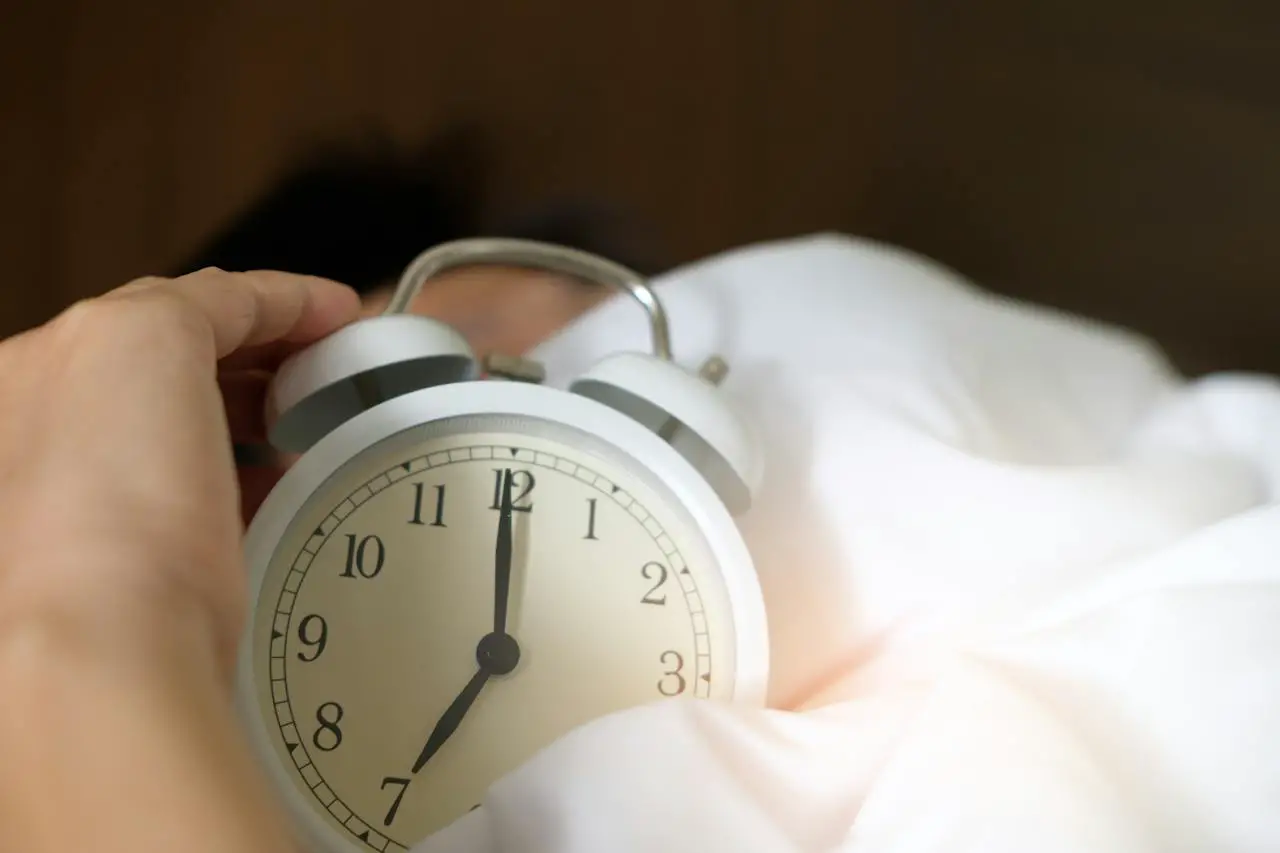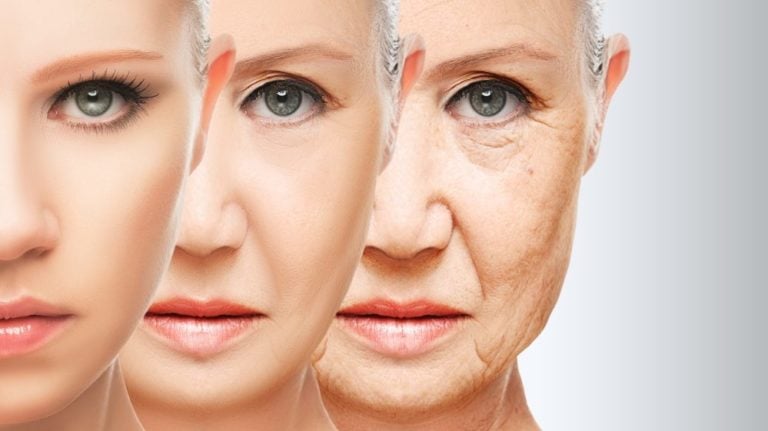As the years pass by, it’s not uncommon to notice a peculiar shift in our daily routines. Among older individuals, the struggle to get adequate sleep is a common thread that ties together the experiences of having restless nights, tossing and turning.
The perpetual quest for the perfect night’s rest becomes increasingly familiar with age. But why does this shift occur, and what are the underlying reasons behind it?
Elderly individuals experiencing poor sleep quality face a higher likelihood of encountering depression, difficulties with focus and recall, excessive drowsiness during the day, and an elevated risk of nighttime falls. Inadequate sleep can additionally contribute to severe health issues, such as an elevated susceptibility to heart disease, diabetes, weight-related concerns, and, in women, a heightened risk of breast cancer. To enhance the quality of your sleep, it’s essential to grasp the root causes of your sleep-related issues.
Waking Up Early As A Part of Natural Aging Process
Our lives are governed by the rhythm of day and night, a dance performed by our internal biological clock, the circadian rhythm. Circadian rhythms, like the conductor of a grand symphony, guide our bodies through a 24-hour cycle, determining when we feel most awake and when we long for rest
One of the key changes observed in circadian rhythms as we age is a gradual shift toward earlier bedtimes and consequently, earlier wake-up times. This shift is driven by a complex interplay of factors, including alterations in the expression of clock genes and the responsiveness of our internal clock to external cues such as light and temperature. [1]
Consequently, older adults often find themselves rising with the sun, a phenomenon that can be attributed, in part, to the natural evolution of their circadian rhythms.
Melatonin, often referred to as the “hormone of darkness,” plays a pivotal role in regulating our sleep-wake patterns. Produced by the pineal gland in response to diminishing light levels in the evening, melatonin helps induce drowsiness and promote the onset of sleep. [2]
However, with the passage of years, the pineal gland undergoes a process of calcification, which reduces its ability to produce melatonin efficiently. This decline in melatonin production can lead to difficulties in falling asleep and maintaining a deep slumber, causing individuals to awaken earlier in the morning.
Furthermore, aging is associated with changes in the structure and function of the suprachiasmatic nucleus (SCN), the master regulator of circadian rhythms in the brain. These alterations can disrupt the synchronization of internal clocks with external cues, contributing to the shift towards earlier wake times.[3]
The role of circadian rhythms and melatonin in aging is a multifaceted tale of biological changes and their impact on our sleep patterns.

Common Sleep Issues in Older Adults
A restful night’s sleep is a cherished commodity that becomes increasingly elusive over time. As we age, the sandman’s visitation can become a sporadic event, and the pursuit of a peaceful slumber can become a nightly struggle. In this chapter, we’ll delve into the prevalent sleep issues that haunt the dreams of older adults, shedding light on the challenges they face when seeking the rejuvenating embrace of sleep.
1. Insomnia: Insomnia, characterized by difficulty falling asleep or staying asleep, is a relentless companion for many older individuals. This sleep disorder can be attributed to a multitude of factors, including changes in circadian rhythms, medications, and underlying medical conditions. Insomnia not only leads to nighttime restlessness but also contributes to the early morning awakenings that are common among older adults. [4]
2. Sleep Apnea: Sleep apnea, a condition where breathing repeatedly stops and starts during sleep, becomes more prevalent with age. The weight gain often associated with aging can exacerbate this condition, leading to loud snoring, disrupted sleep, and frequent awakenings throughout the night. [5]
3. Restless Legs Syndrome (RLS): Restless Legs Syndrome, a neurological disorder characterized by uncomfortable sensations in the legs and an irresistible urge to move them, can be a formidable foe for older adults. These sensations tend to worsen in the evening and at night, making it challenging to fall asleep and stay asleep.
4. Periodic Limb Movement Disorder (PLMD): Similar to RLS, PLMD involves involuntary limb movements during sleep. These movements can be frequent and disruptive, leading to fragmented sleep and early awakenings. PLMD is particularly common in older individuals.
5. Medication Side Effects: Many older adults rely on medications to manage chronic health conditions, and some of these medications can have side effects that disrupt sleep. These side effects may include increased wakefulness, vivid dreams, or drowsiness during the day.
6. Lifestyle Factors: Lifestyle changes can also contribute to sleep issues in older adults. Retirement often brings more flexible schedules, leading some to adopt an earlier bedtime and wake time. Additionally, reduced physical activity and increased sedentary behavior can impact sleep quality.
7. Loneliness: Physical health issues are not the only sleep-related concern at this age.
The CDC reports that older adults are at an increased risk of loneliness, in part because they’re generally more likely to have lost family and friends or live alone.
Common sleep issues in older adults cast a shadow over the peaceful nights they once enjoyed. These issues, ranging from insomnia to sleep apnea and restless legs syndrome, are often intertwined with the aging process, medications, and lifestyle changes.
Do Older Adults Need Less Sleep?
While sleep requirements vary from person to person, most healthy adults require seven to nine hours of sleep per night. The idea that people require less sleep as they age is debunked by the National Institute on Aging, which recommends all adults aim for 7 to 9 hours of sleep nightly. The necessary amount of sleep remains consistent throughout adulthood but acknowledges that aging can pose challenges to achieving deep, restful sleep. Older adults, tend to spend less time in the deeper REM stages of sleep and experience shifts in their circadian rhythm, resulting in earlier bedtimes and awakenings. [6]
The CDC recommends teenagers ages 13 to 18 get 8 to 10 hours of sleep per 24 hours. When a person hits adulthood, the guidelines change: [7]
- People ages 18 to 60 should get at least 7 hours of sleep per night.
- People ages 61 to 64 need 7 to 9 hours of sleep per night.
- People age 65 and older need 7 to 8 hours of sleep per night.

My Personal RX: Sleep Hygiene for Older Adults
While age may bring its own set of sleep challenges, there are practical strategies that can significantly improve the quality of sleep for older adults. Sleep hygiene, a set of practices and habits that promote good sleep, becomes increasingly important as we age. In this section, we will explore a range of sleep hygiene tips tailored to the needs and concerns of older individuals.
1. Maintain a Consistent Sleep Schedule: Establishing a regular sleep-wake schedule helps synchronize your internal body clock. Try to go to bed and wake up at the same time every day, even on weekends, to reinforce your circadian rhythm.
2. Create a Comfortable Sleep Environment: Ensure that your bedroom is conducive to sleep. This means a comfortable mattress and pillows, as well as a dark, quiet, and cool room. Consider using blackout curtains and earplugs if necessary.
3. Limit Screen Time Before Bed: The blue light emitted by phones, tablets, and computers can interfere with the production of melatonin, making it harder to fall asleep. Try to avoid screens at least an hour before bedtime. Unlock the key to a better night’s sleep with our comprehensive Sleep Guide.
4. Be Mindful of Diet and Alcohol: Heavy or spicy meals, caffeine, and alcohol close to bedtime can disrupt sleep. It’s advisable to avoid these substances, especially in the evening hours.
5. Stay Active, But Not Too Late: Regular physical activity is essential for overall health and can improve sleep. However, vigorous exercise too close to bedtime can be stimulating, so try to finish exercising at least a few hours before sleep.
6. Manage Stress: Stress and worry can keep you awake at night. Practice relaxation techniques such as deep breathing, meditation, or gentle yoga to calm your mind before bedtime.
7. Limit Naps: While short power naps can be rejuvenating, long or late-afternoon naps can interfere with nighttime sleep. If you need to nap, keep it brief and before 3 p.m.
9. Get Exposure to Natural Light: Exposure to natural light during the day helps regulate your circadian rhythm. Spend time outdoors, particularly in the morning, to signal to your body that it’s time to be awake.
10. Consider taking supplements: Experience the ultimate restful sleep with Sleep Max. It boosts your natural melatonin production, reduces the stress hormone cortisol, and enhances your sleep quality with calming taurine.
The phenomenon of adults waking up earlier as they age is influenced by a complex interplay of biological, environmental, and lifestyle factors. While it’s true that age may introduce certain sleep challenges, the importance of quality sleep remains constant throughout life.
Fortunately, adopting these sleep hygiene tips can significantly enhance the sleep quality of older adults, ensuring they enjoy restful nights and wake up feeling more energized and rejuvenated. So, as the years advance, remember that the key to a well-rested and vibrant life lies in the right habits and a healthy sleep environment.

Sources:
- “Insomnia and Older Adults.” Sleep Foundation, 13 Sept. 2023, www.sleepfoundation.org/insomnia/older-adults.
- Chen, Wei-Wei, et al. “Pain control by melatonin: Physiological and pharmacological effects.” Experimental and Therapeutic Medicine, vol. 12, no. 4, 2016, pp. 1963–1968, https://doi.org/10.3892/etm.2016.3565.
- Tatineny P, Shafi F, Gohar A, Bhat A. Sleep in the Elderly. Mo Med. 2020
Sep-Oct;117(5):490-495. PMID: 33311760; PMCID: PMC7723148. - “A Good Night’s Sleep.” National Institute on Aging, U.S. Department of Health and Human Services, www.nia.nih.gov/health/good-nights-sleep. Accessed 19 Oct. 2023.
- Ibid.
- Watson, Nathaniel F, et al. “Recommended Amount of Sleep for a Healthy Adult: A Joint Consensus Statement of the American Academy of Sleep Medicine and Sleep Research Society.” Sleep, U.S. National Library of Medicine, 1 June 2015, www.ncbi.nlm.nih.gov/pmc/articles/PMC4434546/.
- “How Much Sleep Do I Need?” Centers for Disease Control and Prevention, Centers for Disease Control and Prevention, 14 Sept. 2022, www.cdc.gov/sleep/about_sleep/how_much_sleep.html.











 Subscribe to Ask Dr. Nandi YouTube Channel
Subscribe to Ask Dr. Nandi YouTube Channel









